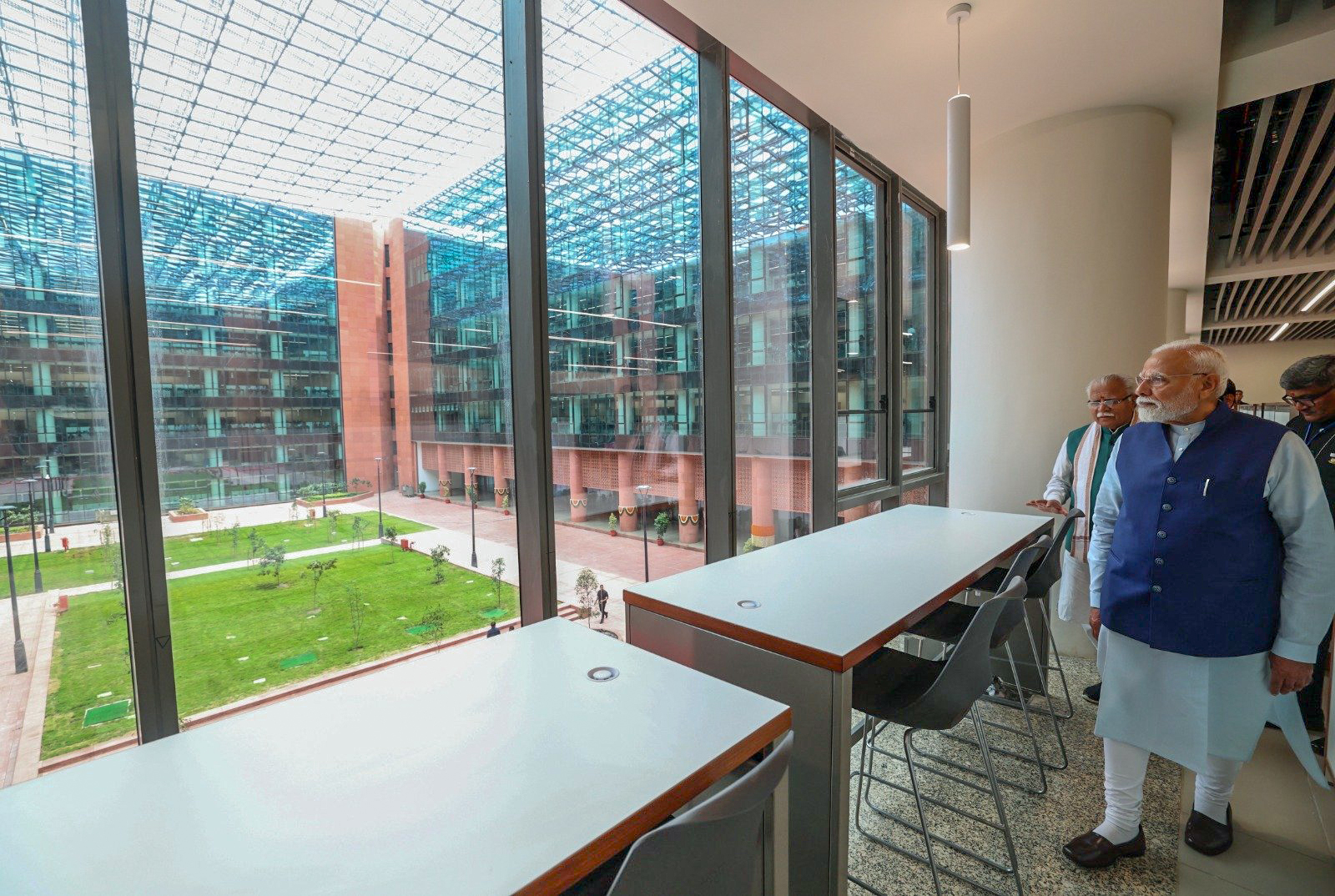Prime Minister Narendra Modi on Wednesday inaugurated Kartavya Bhavan at Kartavya Path in New Delhi, describing it as a cornerstone of modern governance that will shape policies for a developed India. Addressing the inauguration ceremony, PM Modi emphasized that the state-of-the-art office complex embodies the nation’s resolve to fulfill its dreams and reflects a holistic vision of progress reaching every corner of the country.
The Prime Minister noted that August, a month symbolizing revolution, has brought another historic milestone ahead of Independence Day. He highlighted a series of recent infrastructural achievements in New Delhi, including Kartavya Path, the new Parliament Building, Bharat Mandapam, Yashobhoomi, the National War Memorial, and the statue of Netaji Subhash Chandra Bose. PM Modi described Kartavya Bhavan as more than just a building, stating it will be a hub for formulating policies to drive India’s growth in the Amrit Kaal and determine the nation’s trajectory in the decades ahead. He congratulated citizens on the inauguration and expressed gratitude to the engineers and workers involved in its construction.
PM Modi explained that the name ‘Kartavya Bhavan’ was chosen after deep contemplation, reflecting the spirit of India’s democracy and Constitution. Drawing from the Bhagavad Gita, he cited Lord Krishna’s teaching of acting with duty above personal gain, noting that ‘kartavya’ in Indian culture transcends responsibility to embody a collective, action-oriented philosophy. He described Kartavya Bhavan as a sacred space for realizing the aspirations of millions, a foundation for safeguarding citizens’ rights, and a carrier of India’s life energy, encapsulated in the mantra ‘Nagarik Devo Bhava’.
Highlighting the challenges of outdated infrastructure, PM Modi pointed out that many ministries, including the Ministry of Home Affairs, have operated for decades from colonial-era buildings with inadequate space, lighting, and ventilation. He noted that 50 ministries currently function from scattered locations across Delhi, with annual rental costs amounting to Rs 1,500 crore. This decentralization also leads to logistical inefficiencies, with 8,000 to 10,000 employees commuting daily, increasing traffic congestion and administrative delays. PM Modi stressed that 21st-century India requires modern buildings equipped with advanced technology, security, and convenience to enhance decision-making and service delivery.
Kartavya Bhavan, the first of several planned Common Central Secretariat buildings, is designed to address these issues by co-locating ministries, improving coordination, and fostering agile governance. Spanning 1.5 lakh square meters with two basements and seven floors, it will house key ministries such as Home Affairs, External Affairs, Rural Development, MSME, DoPT, Petroleum & Natural Gas, and the Principal Scientific Adviser’s office. The building features IT-ready workspaces, ID-based access controls, integrated surveillance, and a centralized command system. It targets a GRIHA-4 rating with sustainable features like rooftop solar panels generating over 5.34 lakh units of electricity annually, solar water heating, advanced HVAC systems, rainwater harvesting, and zero-discharge waste management.
PM Modi emphasized that the government’s holistic vision ensures development reaches every region. While Delhi has seen projects like the new Parliament, over 30,000 Panchayat Bhavans, four crore pucca houses for the poor, 300 new medical colleges, and 1,300 Amrit Bharat Railway Stations have been built nationwide. He also noted the construction of nearly 90 new airports in the past 11 years.
Reflecting on governance reforms, PM Modi said the last decade has established a transparent, responsive, and citizen-centric model. He highlighted the JAM Trinity (Jan Dhan, Aadhaar, Mobile) for ensuring leakage-free delivery of schemes, saving over Rs 4.3 lakh crore by eliminating 10 crore fake beneficiaries. Additionally, over 1,500 obsolete laws and 40,000 compliances have been repealed to streamline governance. New ministries like Jal Shakti, Cooperation, Fisheries, and Skill Development have been created to address critical sectors, while initiatives like Mission Karmayogi and digital platforms like e-Office have revolutionized administrative processes.
PM Modi urged public servants to approach their duties with renewed enthusiasm in Kartavya Bhavan, emphasizing that every file or application represents the hopes of citizens. He called for collective efforts to make India the world’s third-largest economy and drive initiatives like Make in India and Aatmanirbhar Bharat. The Prime Minister also announced that the historic North and South Blocks will be transformed into ‘Yuge Yugeen Bharat Sangrahalaya’, public museums showcasing India’s civilizational journey, aligning with the vision of ‘Vikas aur Virasat’ (development and heritage).
Union Ministers, parliamentarians, and senior officials attended the event, marking a significant step in India’s journey towards modern, efficient governance.














